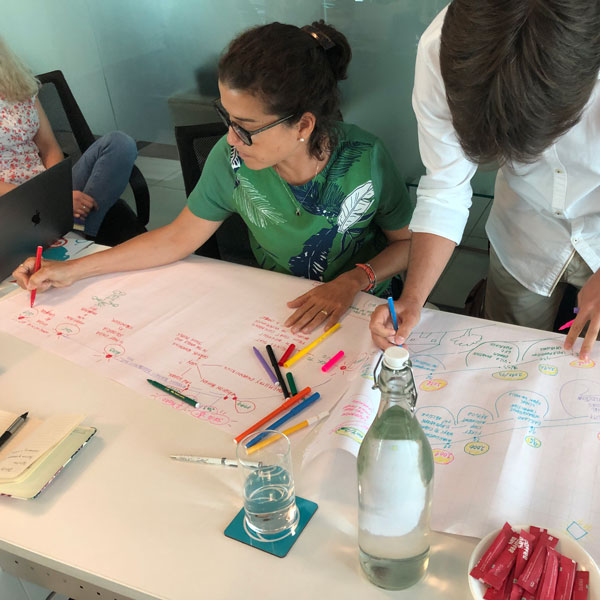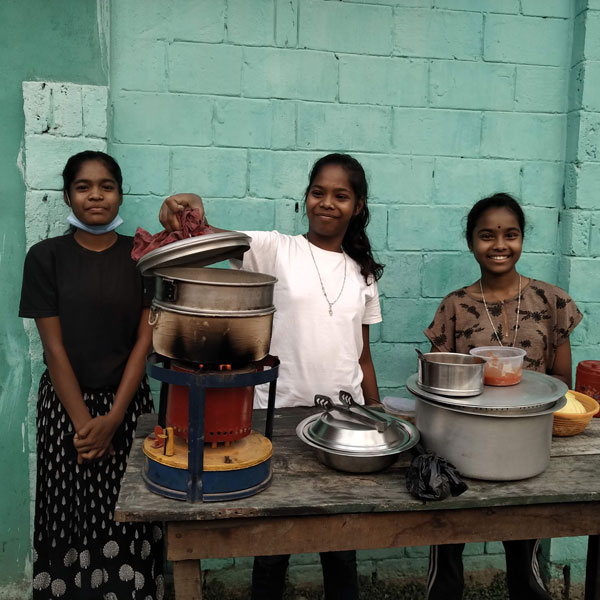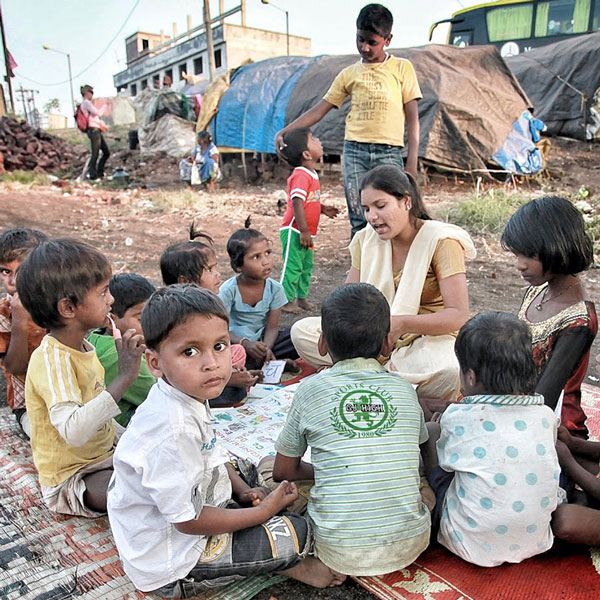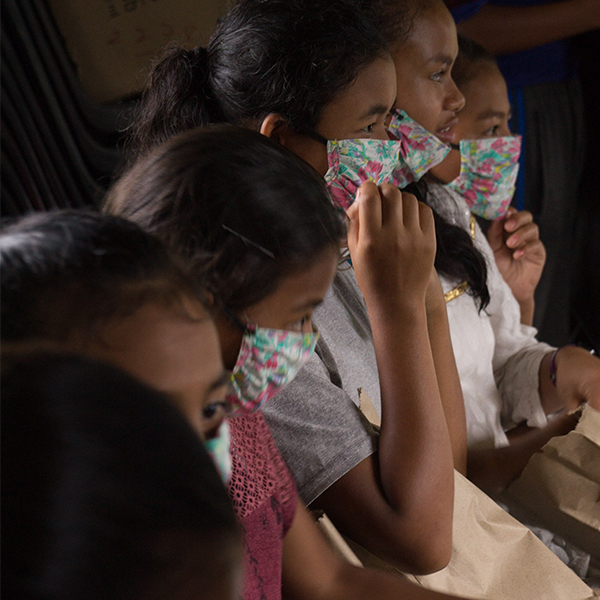This blog post was written by Peacefully Marsharing, a staff person at GFC partner Faith Foundation.
Faith Foundation, located in northeastern India, is using a dream-building approach to set goals, track progress, and create shared ownership of the change the organization is seeking.
In October 2020, GFC and ten of its anti-trafficking partners in India and Bangladesh came together for four days of engaging discussions and planning. Inspired by the dream of a more equitable, safe, joyful, and just world for children, and committed to joining forces to achieve this dream, GFC and the partners went to work on co-creating an action plan.
Some of the partners, such as Faith Foundation in Shillong, India, went a step further and have been facilitating dream building in their own organizations and communities as a way to create shared ownership of the change they want to see.
Faith Foundation’s Peacefully Marsharing recently shared her dream-building experience with GFC’s Kulsoom Khan:
Can you share how Faith Foundation began its dream-building journey and what you appreciated about the process?
As a team, we facilitated and conducted dream building together in November 2020. Dream building is a methodology to structure the aspirations and goals that we would like to achieve as individuals and as a team. We started off with individual dreams, and then we worked as a team and collectively created a common dream in the form of a picture.
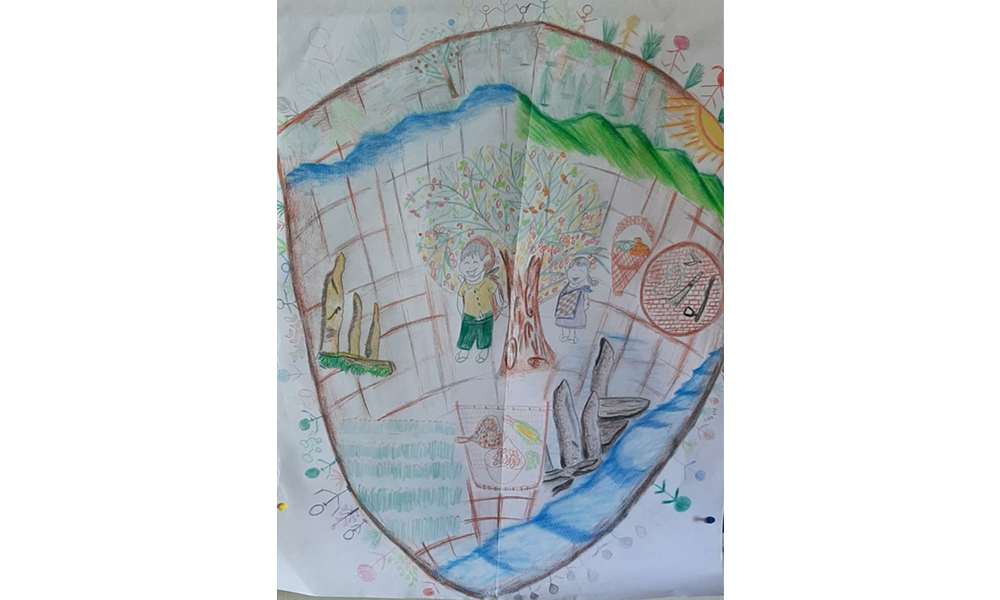
After that, we engaged in a self-assessment facilitated by GFC, looking at our ability and the progress of our work. We did our second self-assessment in April 2021. Self-assessment generates a sense of motivation when our strengths are highlighted, and it provides confidence and encouragement toward achieving our long-term goals.
What is your organization’s dream for change in India?
We dream of a community that is self-reliant and sustainable and that does not need to depend on outsiders for support. We dream of a community that takes ownership of protecting children, of protecting local crops and seeds. A community that is able to bounce back from any difficulties it faces and can advocate for itself. And, of course, we dream of a safe and enabling environment for all.
We have been working with three communities since 2014. It took the organization years to gain trust from the people. We learned from our experience – we had to once cancel a program because there were no community members participating. Eventually, with time and effort, we were able to win their hearts because of the kind of support we have provided.
Now the support is coming from them to us. They have realized their needs and where to seek assistance. Recently, a case of child abuse was reported to us by an ASHA (Accredited Social Health Activist) worker, the head of the village, and a few women. I feel this is an initial stage of community ownership.
How important is this process of dream building, self-assessment, and action planning?
The process is important, in my experience. Every organization has a set of activities and a mission and vision in mind, but when an external person facilitates such a process, it helps us to take a step back, think, and analyze our approach. For example, an external person wants to know more about the activities the organization is doing. Their interest helps us to think about why and when we do these activities, and how to conduct the program activities in more effective ways.
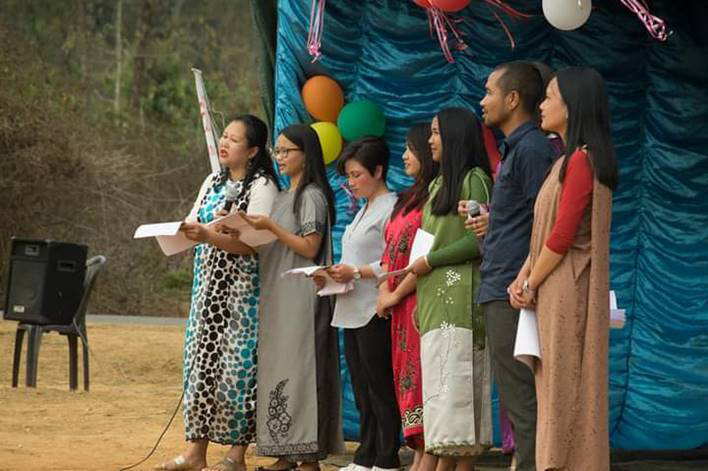
This process also helps us to remember where we are coming from, what our history is as an organization. For example, our outreach to children through our life skills program started with 15 to 20 children and was extended to six schools, then to 20 government schools. It helps us to see where we are presently standing and what we need to do in the future through the lens of appreciating our strengths.
Finally, the process helps us to think outside the box! When the facilitator asks questions – “Why do you think this is the right approach?” “Why are you doing this [activity]?” – it encourages us to think beyond what we are doing. For example, during the self-assessment, I felt content about the relationship we had with one ASHA worker in the village. I forgot that we also have to build our relationships with anganwadi workers (women social workers) and ASHAs in the other two villages.
What is next for Faith Foundation?
While it has been extremely valuable for us to have an external facilitator, we need to continue to learn these facilitation skills and apply them within our team to sustain this process. We are also planning to self-monitor and assess our progress and changes against our plan every three months.
Is there anything you would like to share with GFC and other funders?
Yes! We have realized that an end-of-the-project report to evaluate our work is not enough, because a report is limited to specific plans and activities and does not convey the bigger picture of the organization.
Instead of just a report, funders should facilitate engagement, learning, assessment, and reflection processes so they have a clear and better picture of their partners and of the struggles and milestones these organizations have experienced.
Header photo: A Faith Foundation activity. © Faith Foundation
